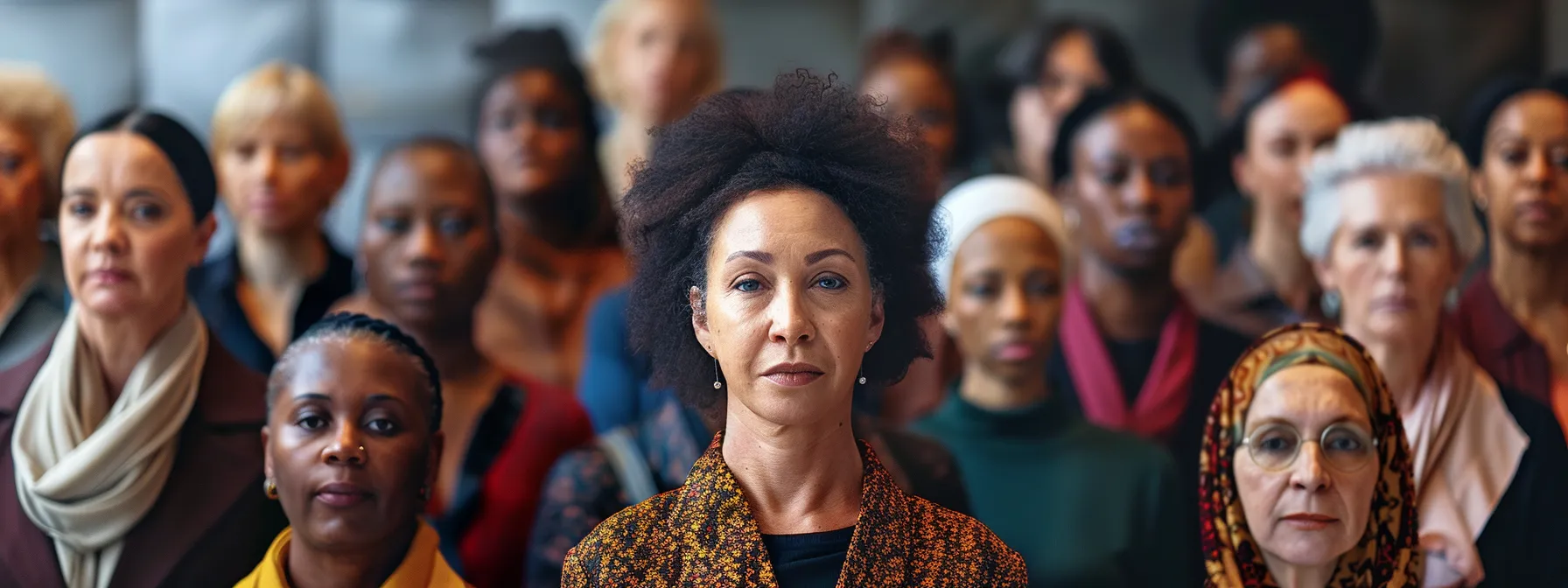Disclaimer: We sometimes use affiliate links in our content. For more information, visit our Disclaimer Page.
Throughout history, influential women like Ada Lovelace, Shirley Chisholm, and Elizabeth Cady Stanton have shaped society in profound ways. This blog post will explore trailblazers in various fields, including science, politics, and arts. Readers will discover how these groundbreaking figures, such as Mary Engle Pennington in food science and those who contributed to in vitro fertilization, overcame barriers and paved the way for future generations. Engaging with this content can inspire individuals to reflect on the importance of women’s contributions, fostering a deeper appreciation for their lasting impact in our world.
Key Takeaways
- Pioneering women have significantly impacted science, technology, arts, and human rights throughout history
- Achievements of women like Marie Curie and Ada Lovelace laid foundations for future advancements
- Leaders such as Rosa Parks and Malala Yousafzai advocate for equality and education globally
- Innovators in sports and advocacy continue to inspire future generations through their courageous actions
- The contributions of diverse women highlight the importance of representation and perseverance in all fields
Pioneers in Science and Technology

Pioneering famous leaders in science and technology have significantly shaped modern understanding and advancement. Marie Curie’s groundbreaking discovery of radium and polonium laid the foundation for cancer treatment. Ada Lovelace established the first concepts of computer programming, while Grace Hopper’s contributions to computer languages transformed the tech landscape. Additionally, Rosalind Franklin’s research on DNA structure and Katherine Johnson’s calculations for space missions exemplify their crucial roles in pushing boundaries. Each of these women’s achievements reflects a vital intersection of gender and culture within their respective fields, paving the way for future generations.
Marie Curie’s Discovery of Radium and Polonium
Marie Curie’s discovery of radium and polonium fundamentally changed the medical field and laid essential groundwork for modern cancer treatment. Her groundbreaking work in radioactivity, a field she pioneered, earned her the distinction of being the first woman to receive the Nobel Prize, an achievement that continues to inspire women in science today. Curie’s relentless pursuit of knowledge amidst societal challenges mirrors the perseverance seen in other historical movements, such as the civil rights movement, showing how dedicated individuals can effect change across various fields, just as Jane Austen shaped literature and Francis Crick revolutionized biology.
Ada Lovelace: The First Computer Programmer
Ada Lovelace, recognized as the first computer programmer, made significant strides in the field of computing during the 19th century. As a mathematician and scientist, she developed algorithms for Charles Babbage’s early mechanical general-purpose computer, the Analytical Engine. Lovelace’s work laid the groundwork for future programming languages, making her one of the most influential females in history, whose revolutionary ideas continue to inspire generations of scientists and programmers alike.
Grace Hopper’s Role in Developing Computer Languages
Grace Hopper, a distinguished mathematician and computer scientist, played a pivotal role in developing computer languages that transformed computing. Her work on the A-0 System, one of the first compiler programs, paved the way for modern programming languages, enabling more efficient writing of code. Hopper’s influence extended to her advocacy for women in science and technology, encouraging countless individuals in various fields, including those pursuing careers in chemistry, nursing, and even aspiring astronauts, to embrace their potential and innovate. The Smithsonian Institution recognizes her contributions by celebrating her legacy as a trailblazer in computer science.
Rosalind Franklin’s Crucial Work on DNA Structure
Rosalind Franklin’s groundbreaking work on the structure of DNA was pivotal in unveiling the molecular blueprint of life. Through her expertise in X-ray crystallography, she captured the famous Photograph 51, which provided critical insights into DNA’s double helix structure. Franklin’s meticulous research, often overshadowed by her male counterparts, mirrors the challenges faced by other trailblazers like Maya Angelou and Mae Jemison, highlighting the importance of recognition in the realms of science and philosophy. Her contributions are essential not only in genetics but also serve as an inspiration for those pursuing careers across diverse fields, including positions as secretaries or actors, demonstrating that all paths can lead to impactful discoveries.
Katherine Johnson’s Calculations That Sent Astronauts to Space
Katherine Johnson’s remarkable calculations were crucial in calculating the trajectories that sent astronauts into space, particularly during the early years of NASA’s space missions. Her work not only showcased her mathematical genius but also broke through racial and gender barriers in a time when women, especially women of color, faced immense challenges in the workforce. Much like Rosalind Franklin’s contributions to DNA research and the legacy of figures like Rosa Parks in civil rights, Johnson’s achievements highlight the importance of diverse voices in history and their impact on critical fields, including not only science and technology but also aspects like criminal justice reform, which benefits from inclusive perspectives.
The quest for knowledge sparked new ideas that changed lives. Yet, alongside this pursuit, another battle raged—a fight for justice that demanded equal voice and dignity for all.
Champions of Human Rights and Social Justice

Rosa Parks’ pivotal role in the Montgomery Bus Boycott exemplifies the fight for civil rights, while Malala Yousafzai champions girls’ education worldwide. Emmeline Pankhurst’s leadership drove the women’s suffrage movement, and Harriet Tubman’s efforts in the Underground Railroad showcased her commitment to freedom. Eleanor Roosevelt significantly influenced human rights policies, making these leaders some of the most notable women in history advocating for gender equality and social justice.
Rosa Parks and the Montgomery Bus Boycott
Rosa Parks’ refusal to give up her bus seat to a white passenger on December 1, 1955, ignited the Montgomery Bus Boycott, a pivotal movement in the civil rights struggle for African Americans. This act of defiance not only challenged racial segregation but also inspired extensive research on civil rights activism and social justice. Just as Florence Nightingale revolutionized nursing or Patsy Mink advanced birth control access, Parks’ courage demonstrates how one individual’s action can catalyze significant societal change, emphasizing the importance of standing up for equality and justice in every community.
Malala Yousafzai’s Fight for Girls’ Education
Malala Yousafzai’s advocacy for girls’ education has made her a prominent figure in the fight for human rights and social justice. Growing up in Pakistan, she faced violence and oppression from those who opposed her right to education, yet she bravely continued to speak out, inspiring millions around the world. By persevering in her mission, Malala has highlighted how education can combat poverty and inequality, echoing the struggles of historical figures like those who fought for suffrage. Her voice contributes significantly to conversations about women’s rights, even influencing leaders, including the president of the United States, to prioritize educational reforms that uplift young girls globally.
Emmeline Pankhurst and the Women’s Suffrage Movement
Emmeline Pankhurst was a key figure in the women’s suffrage movement and played a significant role in advocating for women’s right to vote during the early 20th century. As the founder of the Women’s Social and Political Union (WSPU), Pankhurst employed bold tactics to draw attention to the struggle for equality, making her one of the most powerful women in history. Her efforts complemented movements like those led by Frances Perkins, who highlighted the need for social reforms, while her advocacy pushed against racial segregation and fought for all women’s rights, ultimately laying the groundwork for organizations like the National American Woman Suffrage Association to further advance their goals.
- Emmeline Pankhurst founded the Women’s Social and Political Union (WSPU).
- She used bold tactics to draw attention to women’s suffrage.
- Pankhurst’s work laid the groundwork for future women’s rights movements.
- Her advocacy complemented other social reform efforts, enhancing their impact.
Harriet Tubman’s Leadership in the Underground Railroad
Harriet Tubman’s leadership in the Underground Railroad marked a significant chapter in the struggle for human rights and social justice, positioning her among the most powerful women from history. Through her efforts, Tubman guided hundreds of enslaved individuals, including Asian Americans escaping oppression, to freedom, highlighting her courage and commitment to justice. Her impact resonates alongside other important movements, such as the Seneca Falls Convention, demonstrating how determined individuals can effect change akin to Mother Teresa’s humanitarian work, ultimately inspiring future generations to advocate for equality and human rights.
Eleanor Roosevelt’s Influence on Human Rights Policies
Eleanor Roosevelt’s influence on human rights policies profoundly shaped the landscape of social justice in the United States and beyond. As a champion for equality, she advocated for the rights of marginalized groups, including individuals of color and the transgender community, ensuring their voices were heard in the political arena. Her contributions to the United Nations Universal Declaration of Human Rights showcased her commitment to global equality, making her a notable figure in history akin to those who won the Nobel Prize for peace, while also paving the way for future leaders, such as governors and activists, to continue the pursuit of civil rights.
Human rights and social justice opened doors for change. Now, the focus shifts to those who shape policies and govern—where ideas turn into action.
Leaders in Politics and Governance

Leaders in politics and governance have played pivotal roles in shaping nations and influencing global movements. Indira Gandhi’s tenure as India’s Prime Minister exemplifies feminist leadership in a male-dominated arena. Angela Merkel’s impact on modern Europe showcases her commitment to stability and progress. Ellen Johnson Sirleaf’s presidency in Liberia emphasizes activism for women’s rights, while Golda Meir’s leadership as Israeli Prime Minister defined resilience. Lastly, Queen Elizabeth II’s role illustrates the evolution of contemporary monarchy.
Indira Gandhi’s Tenure as India’s Prime Minister
Indira Gandhi’s tenure as Prime Minister of India marked a significant period in the country’s political landscape, showcasing her status as one of the most influential female leaders in history. Taking office in 1966, Gandhi’s leadership was characterized by bold moves such as the Green Revolution, which aimed to increase agricultural productivity, and a commitment to social justice that resonated with advocates like those in the League of Women Voters. Her tenacity and determination mirrored the pioneering spirit of other trailblazers, including Grace Hopper in technology and literary figures like Maya Angelou, who authored “I Know Why the Caged Bird Sings,” reinforcing the power of women’s voices in shaping society.
Angela Merkel’s Impact on Modern Europe
Angela Merkel’s tenure as Germany’s Chancellor significantly influenced modern Europe, making her one of the most influential female leaders in history. Her pragmatic approach to policy, particularly during the financial crisis and the refugee situation, showcased her ability to navigate complex challenges with a steady hand. By fostering stability and collaboration, Merkel not only strengthened the European Union but also inspired future female leaders like Malala Yousafzai, illustrating the powerful impact of women in governance akin to historical figures such as Mary Edwards Walker, who broke barriers in their own right.
Ellen Johnson Sirleaf’s Presidency in Liberia
Ellen Johnson Sirleaf’s presidency in Liberia marked a historic moment as she became Africa’s first elected female head of state, symbolizing the potential of women in leadership. Her administration focused on health equity and social justice, addressing discrimination against marginalized groups while promoting philanthropy and economic development. As one of the most important women in history, Johnson Sirleaf’s efforts in governance have inspired future female leaders, showcasing the critical role of women in shaping impactful policies and fostering a more inclusive society.
Golda Meir’s Leadership as Israeli Prime Minister
Golda Meir served as Israel’s Prime Minister from 1969 to 1974, making her one of the world’s first female leaders in a primarily male-dominated political landscape. Renowned for her strong leadership style, she confronted critical challenges, including the Yom Kippur War, demonstrating resilience and decisive action during a time of national crisis. Meir’s advocacy for the establishment of Israel and her commitment to social policies reflect her pivotal role in shaping modern Israeli governance and emphasize the importance of female representation in political leadership.
Queen Elizabeth II’s Role in Contemporary Monarchy
Queen Elizabeth II’s reign as the longest-serving monarch in British history significantly influenced the role of contemporary monarchy. Her dedication to public service and diplomatic relations strengthened the monarchy’s relevance in a rapidly changing world, overcoming challenges from modernization and societal shifts. Elizabeth’s approach highlighted the importance of duty, resilience, and adaptability, ensuring the monarchy remains a symbol of continuity and stability for the nation, demonstrating how modern leaders can maintain traditional roles while embracing change.
- She became the longest-serving British monarch.
- Her focus on public service enhanced the monarchy’s relevance.
- Elizabeth demonstrated duty and resilience throughout her reign.
- Her leadership exemplified adaptability in a modern context.
Leadership shapes the world, but creativity breathes life into it. As political figures make decisions, artists and writers capture the essence of our shared humanity, inviting us to explore the depths of our emotions and thoughts.
Innovators in Arts and Literature

Innovators in Arts and Literature
Influential women have made remarkable contributions to arts and literature, significantly shaping culture and society. Maya Angelou’s powerful writings and civil rights activism provide profound insight into the human experience. Frida Kahlo’s surrealist art expresses personal identity and struggle, while Jane Austen’s novels laid the foundation for modern English literature. Toni Morrison’s narratives highlight the African American experience, and Zaha Hadid’s innovative architectural designs redefine space and form. Each of these trailblazers demonstrates the impact of women’s voices in creative expression.
Maya Angelou’s Contributions to Literature and Civil Rights
Maya Angelou was a pivotal figure in both literature and civil rights, using her powerful voice to advocate for justice and equality. Her acclaimed autobiography, “I Know Why the Caged Bird Sings,” transcended mere storytelling, offering profound insights into the struggles faced by African Americans and women. Throughout her career, Angelou’s contributions extended beyond her writing, as she actively participated in civil rights movements, collaborating with leaders like Martin Luther King Jr. and Malcolm X to promote social change and empowerment.
Frida Kahlo’s Expression Through Surrealist Art
Frida Kahlo utilized surrealist art to convey her personal experiences and emotions, creating a powerful narrative that resonates with viewers today. Through vivid colors and symbolic imagery, her paintings reflect themes of identity, pain, and resilience, making her a significant figure in the world of art and culture. Kahlo’s unique style not only invites discussion about the human condition but also serves as an inspiration for artists and individuals seeking to express their own struggles and triumphs through creative means.
Jane Austen’s Influence on English Literature
Jane Austen’s contributions to English literature are profound and far-reaching. Her novels, known for their keen observations of social class and gender roles, have provided a platform for discussions on women’s independence and societal expectations. Works such as “Pride and Prejudice” and “Sense and Sensibility” not only reflect the nuances of human relationships but also inspire modern readers to explore themes of empowerment and individuality in their own lives.
Toni Morrison’s Narratives of African American Experience
Toni Morrison’s narratives profoundly illuminate the African American experience, delving into themes of identity, community, and resilience. Through her acclaimed works, such as “Beloved” and “Song of Solomon,” Morrison explores the complexities of race and culture, providing a voice to those whose stories have historically been marginalized. Her contributions not only enrich American literature but also inspire readers to engage with their own identities and histories, fostering a deeper understanding of societal issues.
Zaha Hadid’s Revolutionary Architectural Designs
Zaha Hadid’s architectural designs have redefined modern architecture, showcasing her unique approach to form and space. As a celebrated architect, she was recognized for her ability to blend innovative structures with organic shapes, resulting in buildings that challenge traditional architectural conventions. Projects like the Guangzhou Opera House and the London Aquatics Centre exemplify her vision and creativity, demonstrating how Hadid’s work continues to inspire a new generation of architects, particularly women in the field.
- Zaha Hadid combined innovative structures with organic shapes.
- Her works include the Guangzhou Opera House and the London Aquatics Centre.
- She inspired future architects, especially women, in the field.
From the pages of art and literature, the world springs forward. Now, attention shifts to those who dared to run faster and explore further, changing the boundaries of what is possible in sports and discovery.
Groundbreakers in Sports and Exploration

Groundbreakers in sports and exploration have left an indelible mark on history, showcasing the power and resilience of women. Amelia Earhart’s legacy in aviation inspires future aviators, while Serena Williams’ achievements in tennis redefine excellence in sports. Junko Tabei became the first woman to summit Everest, and Wilma Rudolph triumphed in the Olympics despite adversity. Billie Jean King’s advocacy for equal pay in sports further underscores the ongoing fight for gender equality in athletics. Each of these women exemplifies courage and determination, paving the way for future generations.
Amelia Earhart’s Legacy in Aviation
Amelia Earhart’s legacy in aviation is marked by her groundbreaking achievements and relentless spirit. As the first woman to fly solo across the Atlantic Ocean in 1932, she not only set records but also inspired countless others to pursue careers in aviation, a field typically dominated by men. Earhart’s advocacy for women in aviation emphasized the importance of breaking barriers and challenging societal norms, making her an enduring symbol of determination and courage for future generations of female aviators.
Serena Williams’ Achievements in Tennis
Serena Williams stands out as one of the most accomplished athletes in tennis history, redefining excellence in the sport through her incredible achievements. With 23 Grand Slam singles titles to her name, she has set a record that showcases not only her skill and determination but also her impact on women’s sports. Williams has consistently challenged gender norms and advocated for equal pay in athletics, inspiring countless athletes to pursue their dreams and fight for equality on and off the court.
Junko Tabei: First Woman to Summit Everest
Junko Tabei made history as the first woman to summit Mount Everest on May 16, 1975, showcasing her remarkable determination and skill in a field dominated by men. Her achievement not only broke records but also inspired numerous female mountaineers to pursue their own climbing ambitions. Tabei’s journey emphasized the importance of resilience and perseverance, reminding aspiring athletes that barriers can be overcome with dedication and hard work.
Wilma Rudolph’s Olympic Victories Despite Adversity
Wilma Rudolph’s journey to Olympic victory is a powerful testament to resilience and determination in the face of adversity. Overcoming polio as a child, she became the first American woman to win three gold medals in a single Olympic Games at the 1960 Rome Olympics. Rudolph’s triumph not only showcased her athletic prowess but also inspired generations of athletes, especially women of color, to pursue their dreams in sports despite facing numerous challenges.
Billie Jean King’s Advocacy for Equal Pay in Sports
Billie Jean King’s advocacy for equal pay in sports transformed the landscape of athletics, highlighting the disparities faced by female athletes. By co-founding the Women’s Sports Foundation and leading the charge for gender equality, she challenged long-standing norms and fought for fair compensation. King’s efforts not only raised awareness but also set the stage for future generations of female athletes to pursue their careers with greater financial support and recognition, emphasizing the importance of equity in sports.
The spirit of innovation that thrived in sports and exploration now breathes life into education and advocacy. Here, visionaries rise, transforming the landscape to empower future generations and champion important causes.
Visionaries in Education and Advocacy

Visionaries in education and advocacy have profoundly influenced society by breaking barriers and championing important causes. Maria Montessori introduced an innovative educational philosophy that emphasizes child-centered learning. Mary McLeod Bethune founded educational institutions that empower African American students. Helen Keller fought tirelessly for disability rights, while Ruth Bader Ginsburg’s legal battles advanced gender equality. Rachel Carson’s environmental advocacy in “Silent Spring” raised awareness about ecological issues. Each of these topics highlights the dedication and impact of these trailblazing women.
Maria Montessori’s Innovative Educational Philosophy
Maria Montessori revolutionized education through her innovative educational philosophy, which emphasizes child-centered learning. By encouraging independence and fostering a love for knowledge, her approach transforms traditional classroom dynamics into engaging environments tailored to the needs of individual learners. Montessori methods promote hands-on activities that encourage exploration and creativity, helping educators understand the importance of nurturing each child’s unique potential, thereby offering valuable insights into effective teaching practices today.
Mary McLeod Bethune’s Foundation of Educational Institutions
Mary McLeod Bethune was a pioneering educator and advocate for African American rights, establishing educational institutions that transformed the lives of countless students. She founded the Daytona Normal and Industrial Institute for Negro Girls, which later became Bethune-Cookman University, providing education tailored to uplift the African American community. Bethune’s commitment to education emphasized both academic excellence and personal development, highlighting her belief that education is a fundamental right that empowers individuals to build better futures.
Helen Keller’s Work for Disability Rights
Helen Keller’s work for disability rights profoundly changed societal perceptions of people with disabilities. As both a deaf and blind individual, she advocated tirelessly for the rights of the disabled, emphasizing education and accessibility as fundamental human rights. Her efforts in founding organizations and collaborating with prominent leaders helped shape legislation and policies that promoted inclusion, ensuring that disability rights became a crucial part of the broader human rights movement.
- Keller was a pioneer in advocating for people with disabilities.
- She emphasized the importance of education and accessibility for all.
- Through her collaborations, she influenced important legislation for disabled individuals.
- Her legacy continues to inspire advocacy for disability rights today.
Ruth Bader Ginsburg’s Legal Battle for Gender Equality
Ruth Bader Ginsburg’s legal battle for gender equality significantly altered the landscape of women’s rights in the United States. As an attorney, she strategically challenged discriminatory laws, arguing cases that highlighted gender bias and its impacts on women’s lives. Her landmark victories in cases before the Supreme Court laid the foundation for future legislation aimed at promoting equal rights, demonstrating the power of law as a tool for social change and inspiring generations to continue advocating for equality in various spheres of life.
Rachel Carson’s Environmental Advocacy in “Silent Spring”
Rachel Carson’s influential work in “Silent Spring” marked a turning point in environmental advocacy, highlighting the dangers of pesticide use and its impact on ecosystems. Her meticulous research and compelling writing raised public awareness about environmental issues, sparking movements that led to greater regulatory protections for wildlife. Carson’s legacy continues to guide discussions on sustainability and conservation, demonstrating how one woman’s voice can effect significant societal change in preserving the planet.
Conclusion
Celebrating influential women throughout history highlights their pivotal roles in shaping society across various fields, from science and technology to arts and advocacy. These trailblazers, such as Marie Curie and Rosa Parks, broke barriers and inspired future generations, demonstrating the profound impact of diversity in leadership. Their achievements not only enhance visibility for women but also encourage others to pursue their passions regardless of societal constraints. Recognizing and honoring these remarkable figures reinforces the importance of continued advocacy for equality and empowerment in today’s world.





